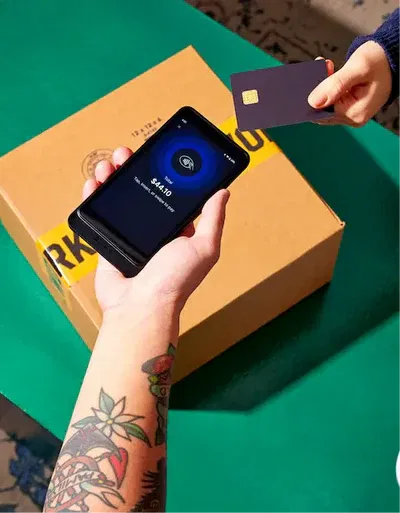Top Ecommerce Website Packages for Every Budget in 2025
Introduction: Why Ecommerce Website Packages Are a Game Changer for Growing Businesses
Imagine this—you’re a small business owner, you’ve got great products, and your customers love what you offer. But there’s a snag: you’re still not online, or your current website feels like it’s stuck in the early 2000s. You know you need an ecommerce presence, but the idea of setting it all up sounds overwhelming. That’s where ecommerce website packages step in.
These all-in-one solutions are specifically designed to eliminate stress, streamline setup, and get your business selling online fast. Whether you’re launching your first store or upgrading an old one, the right ecommerce website package saves time, money, and tech headaches.
In this guide, we’ll explore everything you need to know about ecommerce website packages, including types, pricing, comparisons, must-have features, and real-world tips. By the end, you’ll know exactly what to look for, how to choose the right ecommerce web design packages, and how to get the best return on your investment.
| Category | Details |
|---|---|
| Primary Keyword | ecommerce website packages (used 30+ times) |
| Secondary Keywords | ecommerce web design packages, ecommerce packages, ecommerce website development packages |
| Target Audience | U.S. small business owners seeking to launch or improve an online store |
| Package Types | Basic, Standard, Premium, Subscription |
| Basic Package | $500–$1,000; 5–10 pages, standard template, payment setup |
| Standard Package | $1,000–$2,500; custom design, 20–50 products, SEO setup |
| Premium Package | $2,500–$5,000+; full customization, advanced integrations, analytics |
| Subscription Model | $100–$500/month; includes hosting, updates, and ongoing support |
| Common Inclusions | Mobile design, SEO tools, product setup, payment gateway integration, training |
| Recommended Platforms | Shopify, Wix, WooCommerce, Squarespace, BigCommerce |
| Best Use Cases | First-time store setup, digital transformation, boutique branding, small catalogs |
| Must-Have Features | Mobile responsive, SEO-ready, easy backend, secure checkout, performance-optimized |
| Add-On Services | Email marketing, Google Ads, product photography, CRM, live chat |
| Niche Package Options | Fashion, Beauty, Food Delivery, Subscription Boxes, Digital Products |
| SEO Tools Included | Meta tags, alt text, sitemaps, Google Analytics & Facebook Pixel setup |
| Support & Maintenance | Typically 30-day support + optional monthly maintenance plans |
1. What Are Ecommerce Website Packages?
Think of ecommerce website packages as the fast track to getting your business online. These are pre-designed, customizable bundles that include:
- Website design & development
- Product catalog setup
- Payment gateway integration
- Mobile optimization
- SEO essentials
- Basic training and support
Some ecommerce packages even include logo design, domain registration, SSL certificates, and email marketing integration.
2. Who Are Ecommerce Website Packages For?
These packages are perfect for:
- Small businesses launching their first online store
- Brick-and-mortar businesses going digital
- Side hustlers selling handmade or dropshipped products
- Freelancers offering niche merchandise
If you want a professional website without hiring a full team of developers and designers, ecommerce website development packages offer convenience without compromise.
3. Types of Ecommerce Website Packages
There are several types of ecommerce website packages based on your needs and budget:
Basic Ecommerce Packages:
- Best for beginners or businesses with under 20 products
- Pre-built templates
- Minimal customization
Standard Ecommerce Packages:
- Ideal for growing businesses
- Custom design elements
- Integration with marketing tools and analytics
Advanced Ecommerce Website Development Packages:
- Tailored for high-volume stores
- Complex functionality (multi-vendor, memberships, etc.)
- Fully custom UI/UX
Monthly Subscription Packages:
- Recurring plans including maintenance and updates
- Ideal for businesses wanting ongoing support
4. What to Look for in Ecommerce Web Design Packages
Here’s your must-have checklist when evaluating ecommerce web design packages:
- Mobile responsiveness
- SEO optimization
- User-friendly backend dashboard
- Fast loading speed
- Built-in security features
- Payment gateway support (PayPal, Stripe, etc.)
- Customer support & training
Optional but valuable add-ons:
- Email marketing integration
- Live chat
- CRM integrations
- Social media feeds
5. Ecommerce Website Packages Pricing Comparison
| Package Type | Typical Features | Estimated Cost Range (USD) |
|---|---|---|
| Starter Package | 5–10 pages, payment integration, standard theme | $500–$1,000 |
| Standard Package | Custom theme, SEO setup, 20–50 product uploads | $1,000–$2,500 |
| Premium Package | Custom design, analytics, integrations, advanced features | $2,500–$5,000+ |
| Subscription Package | Monthly site management and updates | $100–$500/month |
Insert an image of a comparison chart with features here
6. Pros and Cons of Ecommerce Website Development Packages
Pros:
- Quicker launch time
- Predictable pricing
- All-in-one convenience
- Professional results without needing tech knowledge
Cons:
- May limit design flexibility (in lower-tier plans)
- Some require ongoing fees
- Overloaded packages may include features you don’t need
That said, the best ecommerce website packages are scalable, so you can upgrade as your business grows.
7. Popular Platforms Offering Ecommerce Website Packages
Many service providers offer pre-bundled ecommerce packages across platforms. Here’s a breakdown:
- Shopify Experts: Offers custom and template-based ecommerce website packages for quick setups.
- Wix Partners: Great for drag-and-drop, easy-to-use small business stores.
- WooCommerce Agencies: Excellent if you need WordPress-based customization.
- Squarespace Designers: Stylish designs and integrated ecommerce functionality.
- BigCommerce Developers: Ideal for large product catalogs and complex needs.
8. How to Choose the Right Ecommerce Package for Your Business
Step 1: Define Your Goals
- Do you need a store in 2 weeks or 2 months?
- Is your priority budget, branding, or scalability?
Step 2: List Required Features
- Do you need subscriptions? Multi-language? Wholesale pricing?
Step 3: Set a Realistic Budget
- Factor in hosting, maintenance, and potential app costs
Step 4: Compare Providers
- Look at their portfolios, reviews, and customer support options
Step 5: Start Small and Scale
- Choose a package that lets you add features as needed
9. Red Flags to Avoid When Shopping for Ecommerce Packages
- No portfolio or client references
- Vague pricing or hidden fees
- Lack of mobile responsiveness
- Poor communication
- No support after launch
The best ecommerce website development packages come with full transparency and post-launch support.
10. Add-On Services to Enhance Your Package
Many providers offer optional add-ons to their ecommerce website packages, such as:
- Product photography
- Custom copywriting
- Google Ads setup
- Email marketing templates
- Affiliate marketing support
These additions enhance your site’s performance and user experience.
11. Ecommerce Packages for Niche Industries
Tailored ecommerce packages exist for:
- Fashion & Apparel
- Health & Beauty
- Food & Beverage (with delivery integrations)
- Digital Products & Downloads
- Subscription Boxes
Make sure the ecommerce web design package includes features specific to your niche.
12. Maintenance and Support in Ecommerce Website Development Packages
Most reputable ecommerce website packages include at least 30 days of support. Ongoing maintenance plans cover:
- Security updates
- Bug fixes
- Feature upgrades
- SEO audits
- Analytics tracking
Investing in a monthly plan ensures your store stays optimized and secure.
13. Real Business Case: A Boutique Brand’s Journey
A New Jersey-based boutique owner used a $1,500 ecommerce website package that included:
- Shopify setup
- 30 product uploads
- Email newsletter integration
Result:
- Launch in 10 days
- $5,000 in sales within the first month
- Seamless mobile experience that boosted conversions by 35%
This success story highlights how the right ecommerce package can transform a business fast.
14. SEO and Marketing in Ecommerce Website Packages
Quality ecommerce website development packages often include:
- On-page SEO (titles, meta descriptions, alt tags)
- Sitemap creation
- Google Analytics setup
- Facebook Pixel integration
Some premium ecommerce web design packages also include blog setup and content marketing planning.
1. What are ecommerce website packages and why should I choose one?
Ecommerce website packages are pre-bundled solutions that provide everything a business needs to launch or upgrade an online store. These packages typically include web design, product listing setup, payment gateway integration, SEO tools, mobile optimization, and technical support.
Choosing an ecommerce website package simplifies the process by eliminating the need to hire multiple experts or juggle tools yourself. Whether you’re a first-time store owner or a growing business, ecommerce web design packages give you a professionally built website with predictable costs and timelines.
2. What is included in a typical ecommerce website development package?
A standard ecommerce website development package may include:
-
Custom or template-based website design
-
Shopping cart and checkout setup
-
Product listings (limited number based on package level)
-
Mobile responsiveness
-
Basic SEO optimization (title tags, alt tags, metadata)
-
Payment processor integration (e.g., PayPal, Stripe)
-
Hosting and domain setup
-
Training or user manual
-
Post-launch support for a limited period
Higher-end ecommerce packages often add integrations like CRM tools, inventory syncing, blog setup, or email marketing automation.
3. How do ecommerce web design packages help small businesses?
Ecommerce web design packages help small businesses by reducing the time, technical effort, and cost involved in launching an online store. Instead of hiring a developer, designer, marketer, and IT consultant separately, a bundled ecommerce package handles everything in one go.
You get a fully functional website that looks professional, works on all devices, and supports SEO and digital marketing—giving your small business the edge it needs to compete online.
4. Are ecommerce website packages customizable or are they fixed?
Most reputable ecommerce website packages are customizable to a degree. Basic packages may offer fixed layouts and limited product slots, but mid-tier and premium packages often include customizable design elements, branding support, plugin integrations, and personalized training.
For businesses with unique needs—like multi-language support, subscription models, or wholesale pricing—many providers offer flexible ecommerce website development packages tailored to your goals.
5. What is the average cost of ecommerce website packages in the U.S.?
The cost of ecommerce website packages varies by scope, provider, and included services. Here’s a general pricing breakdown:
-
Basic Package: $500 – $1,000 (template site, basic product setup)
-
Standard Package: $1,000 – $2,500 (custom design, integrations, SEO)
-
Premium Package: $2,500 – $5,000+ (advanced functionality, full customization)
-
Monthly Subscriptions: $100 – $500/month (site maintenance, updates, hosting)
Always check what’s included and ask for a detailed quote to avoid hidden charges.
6. What platform will my ecommerce package use—Shopify, WooCommerce, or something else?
Your ecommerce website package may be built on platforms such as:
-
Shopify – Ideal for easy setup, scalability, and app ecosystem
-
WooCommerce – Great for WordPress users wanting full control
-
Wix – User-friendly and affordable for small inventories
-
BigCommerce – Powerful for larger catalogs and B2B solutions
-
Squarespace – Stylish templates for brands and creatives
Ask your provider which platform your package is based on and why it’s the best fit for your business model.
7. Can ecommerce packages support mobile devices and responsive design?
Yes. Mobile optimization is now a standard part of all good ecommerce website packages. Your online store should look and function beautifully on smartphones, tablets, and desktops. Mobile responsiveness boosts user experience and SEO rankings—making it essential for every business.
When evaluating ecommerce web design packages, confirm that responsive design is included by default, not an add-on.
8. What kind of support do I get with ecommerce website development packages?
Most ecommerce website development packages include:
-
Initial setup guidance or walkthrough
-
Bug fixes for a limited time post-launch (30 to 90 days)
-
Email or chat-based tech support
-
Admin panel training or documentation
Premium packages or monthly retainers may offer ongoing support, monthly maintenance, performance audits, plugin updates, and even content editing help.
9. Are SEO tools included in ecommerce web design packages?
Basic SEO is often included in most ecommerce web design packages, covering:
-
Meta title and description setup
-
Keyword-friendly URL structure
-
Image alt tagging
-
Mobile speed optimization
-
XML sitemap creation
Some advanced ecommerce website packages also include blog integration, schema markup, link building tools, and SEO dashboards to monitor performance.
10. How do I know if an ecommerce package is right for my business?
Ask yourself:
-
Do I have time to build a store from scratch?
-
Is my budget better spent on DIY or done-for-you service?
-
Am I looking for a professional image with minimal hassle?
If you answered yes to outsourcing and value-for-money, then ecommerce packages make sense. They’re especially ideal for new businesses, startups, or entrepreneurs who want to focus on selling—not coding.
11. Can I upgrade or change my ecommerce website package later?
Yes. Reputable providers of ecommerce website packages allow upgrades from basic to advanced plans. For example, you can start with 10 products and expand to 500 later. You can also integrate more complex features like multilingual stores, live chat, or CRM systems as your business scales.
Look for scalable ecommerce website development packages that support long-term growth.
12. Are ecommerce website packages good for dropshipping businesses?
Absolutely. Many ecommerce packages cater to dropshipping models. Look for features like:
-
Inventory syncing with suppliers
-
One-click order fulfillment
-
Automated pricing and shipping rules
-
Integration with platforms like Oberlo or Spocket
If you’re starting a dropshipping store, confirm that the ecommerce web design package supports your preferred tools and marketplaces.
13. Do ecommerce packages include marketing tools or services?
Some ecommerce website packages include marketing tools like:
-
Email marketing (Mailchimp, Klaviyo)
-
Facebook Pixel and Google Analytics integration
-
Discount code setup
-
Blog and content creation tools
-
SEO modules and analytics
More premium ecommerce web design packages may offer full digital marketing strategies, ad campaign setup, or even social media management for an additional fee.
14. What industries are best served by ecommerce website development packages?
Ecommerce website packages are versatile and serve multiple industries, including:
-
Fashion and apparel
-
Health and beauty
-
Home and lifestyle
-
Food and beverage
-
Digital products and subscriptions
-
Pet products and toys
Niche-specific ecommerce web design packages often include tailored features like size charts, booking systems, or delivery modules to match your vertical.
15. What should I ask a provider before purchasing an ecommerce website package?
Use this checklist:
-
What’s included and what’s not?
-
What platform do you use?
-
Can I see samples of previous work?
-
How long is your post-launch support?
-
Can I upgrade my plan later?
-
Do you offer training or documentation?
-
What’s your turnaround time?
-
Are there any hidden fees?
The more transparent the provider, the better the long-term value of your ecommerce website development package.
15. Conclusion: Is an Ecommerce Website Package Right for You?
If you’re a U.S. small business owner looking to establish or improve your online store, ecommerce website packages offer the perfect solution. They’re affordable, scalable, and designed to remove the technical burden from your plate.
Whether you need basic setup or a robust, fully-customized solution, there’s a package tailored for your needs. Just remember to compare features, check provider credibility, and prioritize long-term scalability.
Still not sure which ecommerce website package is right for you? Drop a question below, or contact us for a personalized consultation to match your goals and budget.




